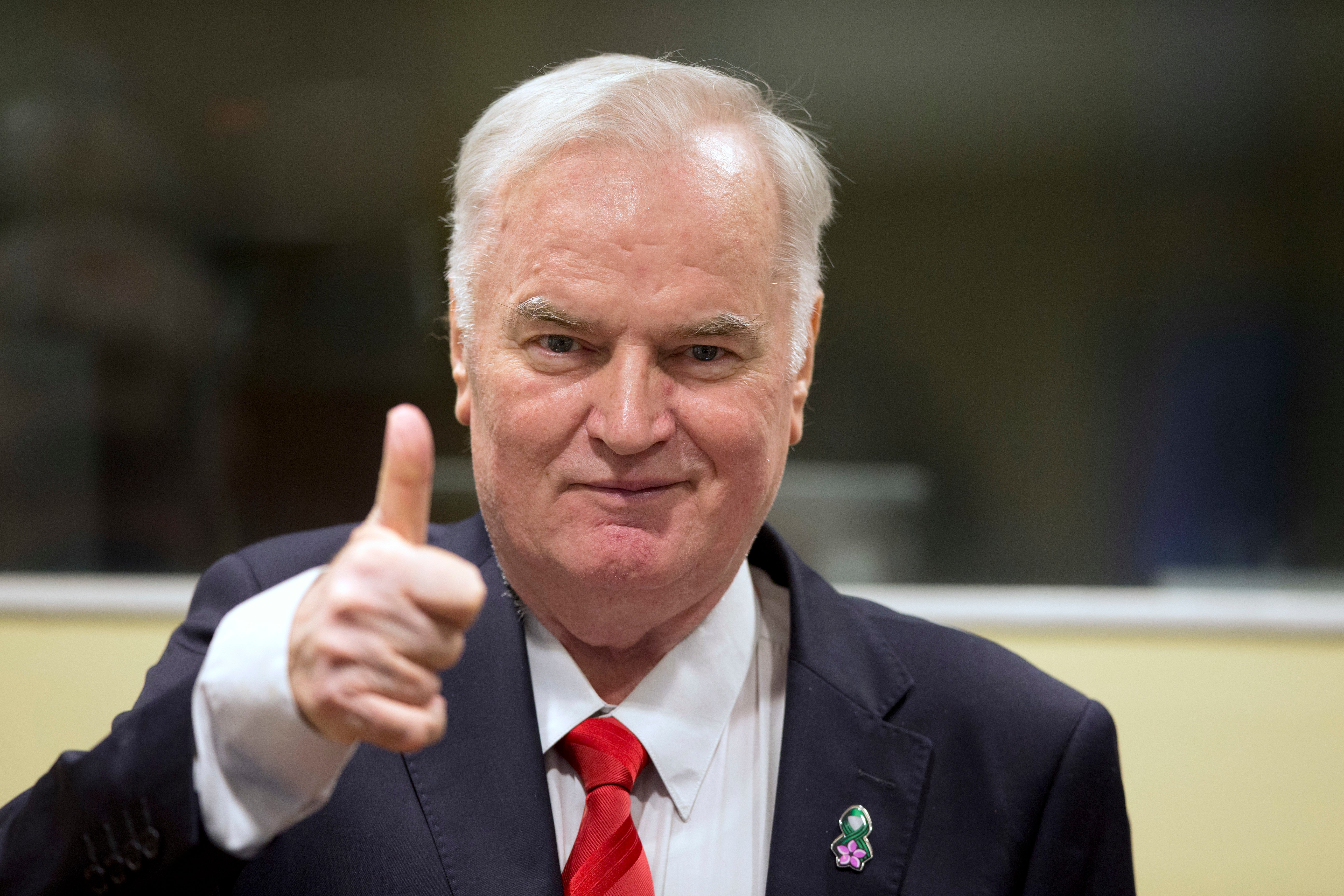UN judges to rule on Ratko Mladic appeal against convictions
Former Bosnian Serb military chief Ratko Mladic is about to hear if U.N. judges have upheld or overturned his convictions and life sentence for masterminding genocide and other atrocities throughout Bosnia’s 1992-95 war

Your support helps us to tell the story
From reproductive rights to climate change to Big Tech, The Independent is on the ground when the story is developing. Whether it's investigating the financials of Elon Musk's pro-Trump PAC or producing our latest documentary, 'The A Word', which shines a light on the American women fighting for reproductive rights, we know how important it is to parse out the facts from the messaging.
At such a critical moment in US history, we need reporters on the ground. Your donation allows us to keep sending journalists to speak to both sides of the story.
The Independent is trusted by Americans across the entire political spectrum. And unlike many other quality news outlets, we choose not to lock Americans out of our reporting and analysis with paywalls. We believe quality journalism should be available to everyone, paid for by those who can afford it.
Your support makes all the difference.Former Bosnian Serb military chief Ratko Mladic will hear Tuesday if U.N. judges have upheld or overturned his convictions and life sentence for masterminding genocide and other atrocities throughout Bosnia's 1992-95 war.
Mladic, known as the “Butcher of Bosnia” for leading troops responsible for a string of deadly campaigns including the 1995 Srebrenica massacre and the siege of Sarajevo was convicted in 2017 and sentenced to life imprisonment.
The verdicts in the appeal case will all but wrap up U.N. prosecutions of crimes committed in the war that killed more than 100,000 and left millions homeless.
Mladic was found guilty of genocide for leading the 1995 massacre in the eastern enclave of Srebrenica of more than 8,000 Muslim men and boys. It was the worst massacre on European soil since World War II. Widows and mothers of victims will be in court to hear the judgment by a five-judge panel led by Zambian Presiding Judge Prisca Matimba Nyambe.
Mladic also was found guilty of other crimes including persecution, extermination, murder and terror. He was acquitted of a second genocide charge linked to a campaigns to drive non-Serbs out of several towns early in the war. Prosecutors appealed that acquittal.
Mladic's former political leader, Radovan Karadzic also was convicted of the same crimes and is serving a life sentence.
Mladic was first indicted in July 1995. After the war in Bosnia ended, he went into hiding and was finally arrested in 2011 and handed over to the International Criminal Tribunal for the former Yugoslavia by the then-ruling pro-Western government of Serbia.
The U.N. tribunal has since shut its doors. Mladic's appeal and other legal issues left over from the tribunal are being dealt with by the U.N.'s International Residual Mechanism for Criminal Tribunals, which is housed in the same building as the now-defunct court for the former Yugoslavia.
Mladic and his legacy still divide Bosnia. Bosniaks, mostly Muslims, view him as a villain and war criminal while many Bosnian Serbs still consider him a hero.
“I cannot accept any verdict,” Serb war veteran Milije Radovic from the eastern Bosnian town of Foca told The Associated Press. “For me, he is an icon. And for the Serb people, he is an icon.”